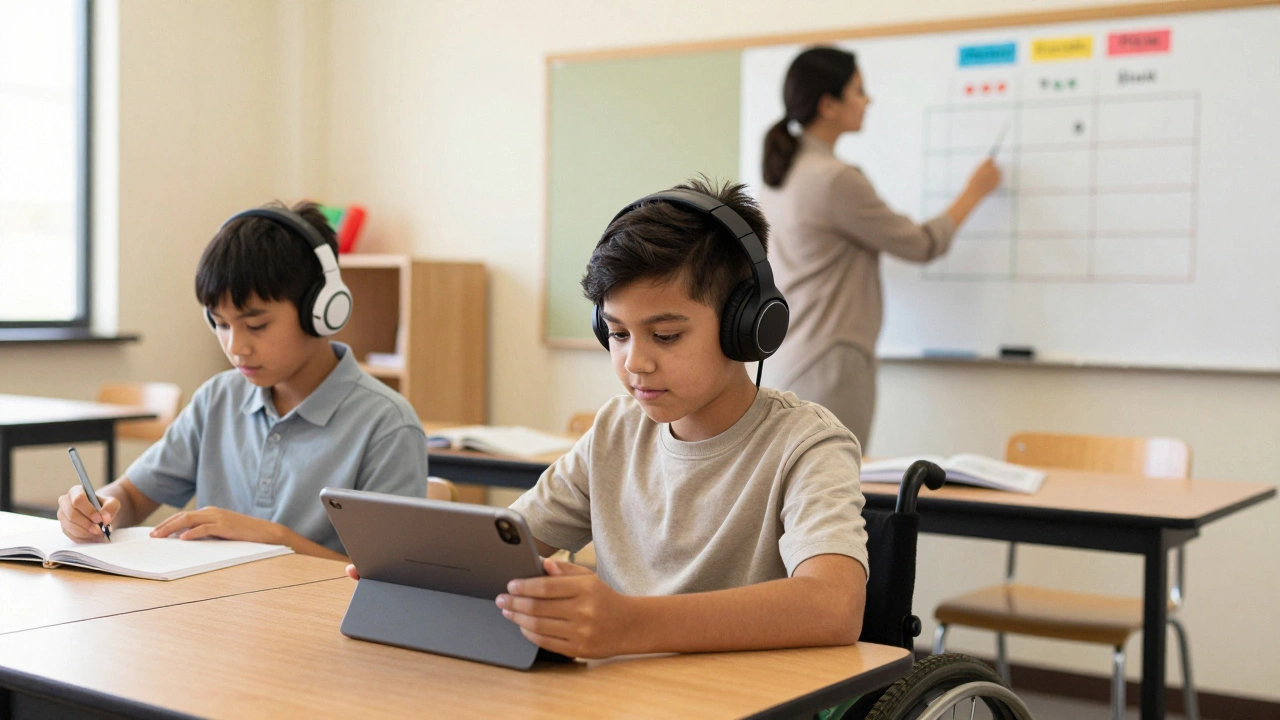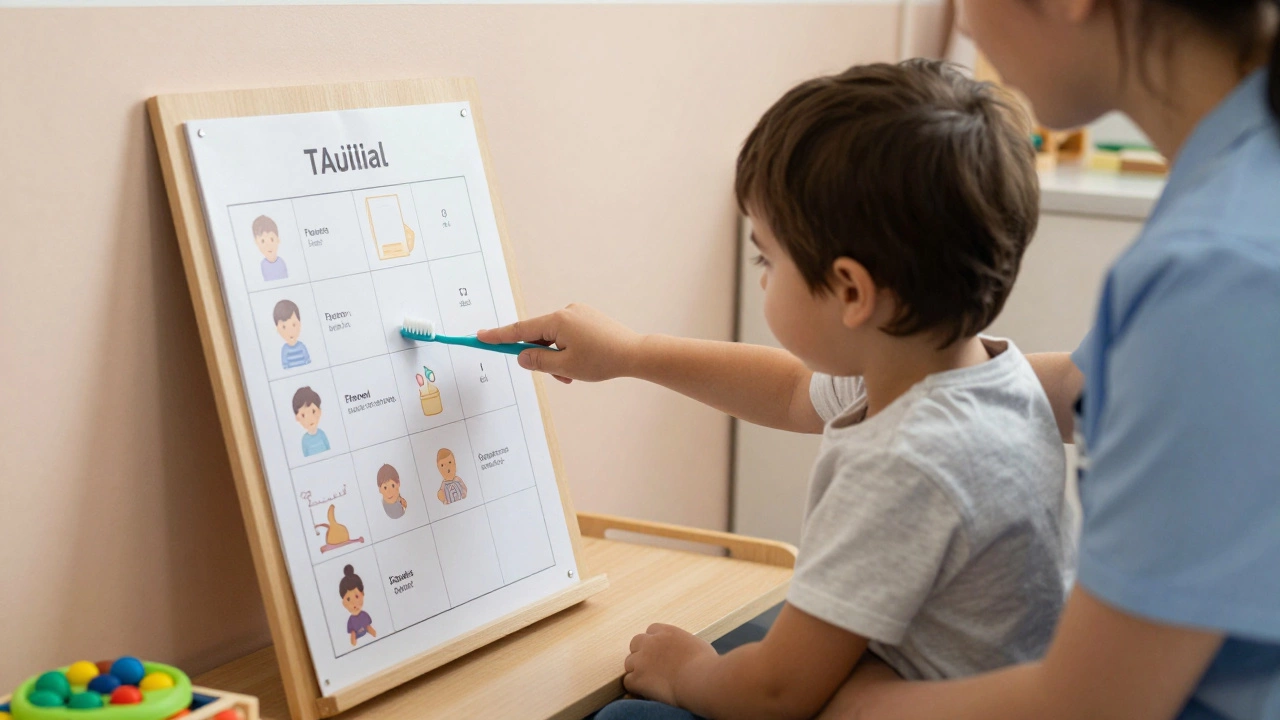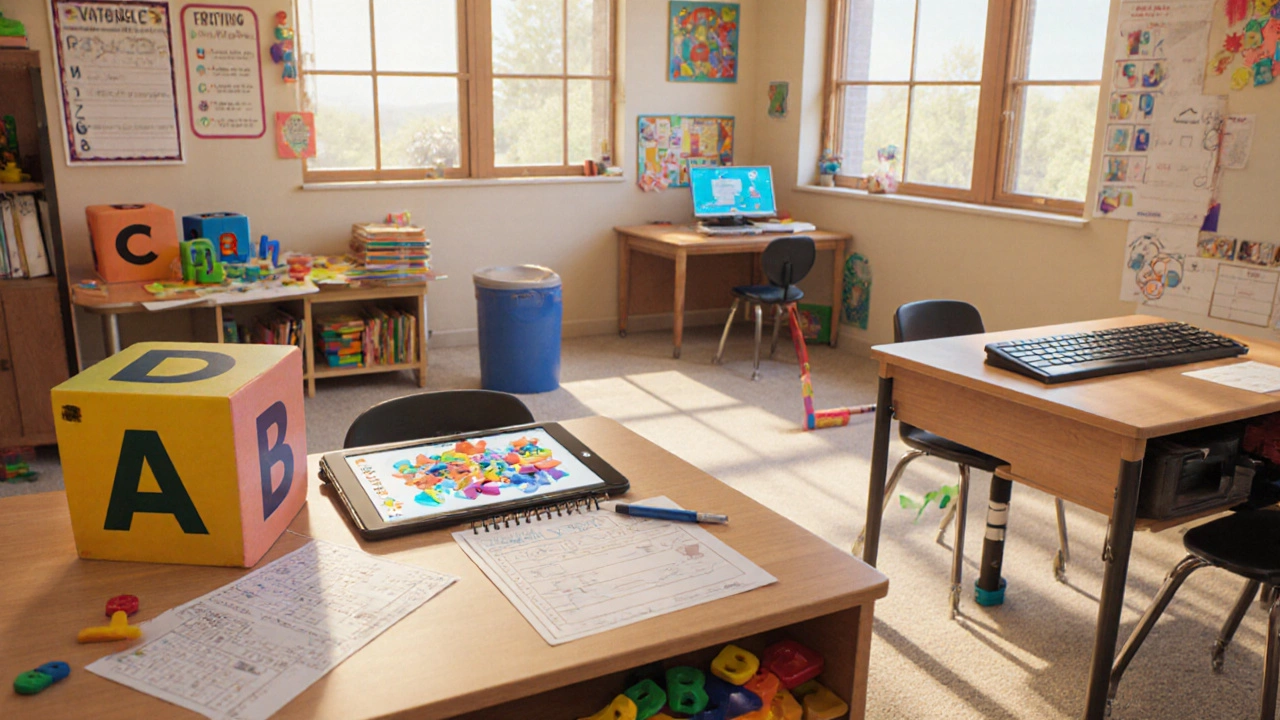Special Needs Resources You Can Use Today
Whether you’re a parent, teacher, or just curious, you need straight‑forward help that works. This page pulls together the most useful articles on language, daily challenges, and practical tips for kids with special needs. No jargon, just what matters.
Talk the Right Way
Words shape how people feel. Using respectful terms like “students with disabilities” or “neurodivergent learners” shows you care and avoids outdated labels. Our guide on polite terms explains why inclusive language matters and gives quick examples you can start using right now.
Everyday Strategies for Families and Classrooms
Raising a child with special needs can feel like a marathon. From dealing with ADHD‑related fatigue to creating sensory‑friendly spaces for autistic kids, we break down real‑world steps. Learn how to spot signs that a child might need extra support, set up simple routines at home, and work with schools to get the right assessments.
Parents of kids with ADHD often hear that the children have endless energy. In reality, many of them experience crushing tiredness that impacts focus. Our article on ADHD fatigue explains why this happens and offers three easy tactics: schedule short movement breaks, keep a consistent sleep routine, and use visual timers to manage tasks.
Teachers looking for inclusive classroom ideas will find tips on language, seating arrangements, and how to give clear instructions without singling anyone out. Small changes—like using visual cues or offering choice boards—can boost confidence for learners who process information differently.
Autistic learners thrive when their environment respects sensory needs. Simple adjustments such as dimming lights, providing noise‑reducing headphones, and allowing movement breaks can make a big difference. Our guide on what autistic people need most also points to communication tools that help them express themselves.
Identifying neurodivergence early helps families get the right help sooner. Look for patterns like intense interests, difficulty with social cues, or sensory sensitivities. If you notice several of these signs, consider a professional screening. Early support can prevent frustration later on.
When you suspect a child might need special education, start by gathering observations from home and school. Write down specific examples of academic or behavioral challenges, then talk to a teacher or school counselor. They can recommend an assessment that pinpoints the child’s strengths and areas for growth.
Every parent faces moments of doubt, but sharing experiences with other families can lift the load. Online forums, local support groups, and school‑run workshops are great places to swap ideas, ask questions, and find resources that fit your situation.
Feeling overwhelmed? Take one step at a time. Choose a single strategy—like using inclusive language or setting a consistent bedtime—and stick with it for a week. Small wins build momentum and show your child that you’re invested in their success.

What Are 14 Types of Disability? A Clear Guide for Educators and Families
- by Eliza Fairweather
- on 12 Feb 2026
Learn about the 14 types of disability commonly seen in special needs education. From physical and sensory impairments to learning and mental health conditions, this guide helps educators and families understand how each affects learning and what support works best.

What Is Considered a Severe Learning Disability?
- by Eliza Fairweather
- on 1 Feb 2026
A severe learning disability means lifelong challenges with thinking, communicating, and daily tasks. It's not just being slow - it's a deep neurological difference that requires constant support. Learn what sets it apart from mild learning issues and how people live with it.

Do Children Grow Out of Special Needs? What Parents Really Need to Know
- by Eliza Fairweather
- on 11 Jan 2026
Children don't simply outgrow special needs-they learn to manage them. Understanding the difference between progress and cure helps parents provide the right support at every stage.

Can Special Ed Kids Be Successful? Real Stories, Real Results
- by Eliza Fairweather
- on 14 Nov 2025
Yes, special ed kids can be successful - not by fitting into a standard mold, but by finding their own path. Real stories show how support, belief, and inclusion lead to meaningful lives.

What Is an Example of a Special Needs Behavior?
- by Eliza Fairweather
- on 27 Oct 2025
Special needs behaviors like hand-flapping, meltdowns, or sensory avoidance are forms of communication-not defiance. Learn real examples, why they happen, and how to respond with understanding instead of punishment.

Understanding the Four D's of Learning Disabilities: Dyslexia, Dysgraphia, Dyscalculia, Dyspraxia
- by Eliza Fairweather
- on 21 Oct 2025
Explore the four D's of learning disabilities-dyslexia, dysgraphia, dyscalculia, and dyspraxia. Learn their signs, causes, classroom strategies, and how to get proper support.

Is Homeschooling Better for Kids with ADHD?
- by Eliza Fairweather
- on 19 Oct 2025
Explore whether homeschooling suits children with ADHD, covering benefits, challenges, setup steps, resources, and a detailed comparison to traditional schools.

What's the New Term for Special Needs? Updated Inclusive Language Guide
- by Eliza Fairweather
- on 8 Oct 2025
Explore the latest inclusive terms replacing "special needs", learn why the language shift matters, and get practical tips for using neurodivergent, person‑first, and identity‑first language.

Polite Terms for Special Needs: Language, Respect, and Modern Etiquette
- by Eliza Fairweather
- on 6 Aug 2025
Explore the most respectful and up-to-date terms for 'special needs.' Learn about inclusive language, etiquette, and tips for thoughtful conversation.

Struggles and Triumphs: The Realities of Parenting a Special Needs Child in Australia
- by Eliza Fairweather
- on 16 Jul 2025
Parenting a special needs child is emotional and demanding. This article explores daily struggles, support systems, and practical tips for Australian families.

Do Kids With ADHD Get Tired? Fatigue and Focus Explained
- by Eliza Fairweather
- on 18 Jun 2025
Many people think hyperactive kids with ADHD have endless energy, but that's not the whole story. This article digs into why kids with ADHD can actually feel really tired, sometimes even more than their peers. You'll find out what causes this fatigue, how it shows up in daily life, and ways to spot it. Plus, there are real-life tips to help kids manage their energy. It’s practical, straight talk for parents and teachers navigating the tricky mix of ADHD and tiredness.

What to Call Kids with Special Needs: Navigating Language and Inclusion
- by Eliza Fairweather
- on 22 Mar 2025
In today's world, identifying the right terminology for children with special needs is crucial for promoting respect and inclusion. This topic explores how language impacts perception and inclusion, highlighting the shift from outdated terms to more respectful alternatives. Understanding the preferred terminology is essential for those in special education, parents, and the general public. This discussion not only addresses why words matter but also offers tips for fostering a more inclusive environment.
